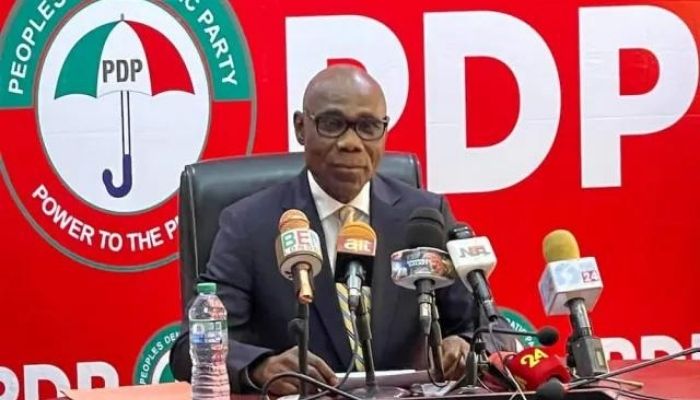 As the National Assembly resumes today one of the items reported to be at the top of their agenda is the Petroleum Industry Bill (PIB) 2012. For five years now, the executive and the legislature have struggled to pass a law to reform the sector responsible for 80% of Nigeria’s government revenue and arguably 100% responsible for Nigeria’s corruption fueled underdevelopment.
As the National Assembly resumes today one of the items reported to be at the top of their agenda is the Petroleum Industry Bill (PIB) 2012. For five years now, the executive and the legislature have struggled to pass a law to reform the sector responsible for 80% of Nigeria’s government revenue and arguably 100% responsible for Nigeria’s corruption fueled underdevelopment.
Way back in 2000, one year into ex president Obasanjo’s first term, petroleum sector reform was already on the agenda. He established the Oil and Gas Implementation Committee (OGIC) under the expertise of Rilwan Lukman the perennial petroleum minister and then it took 8 years for the work of the OGIC to translate into a bill under President Yar’adua. Let’s say for the interest of time that the ‘rest is history’ but it is doubtful if any other bills could compete with
Nigeria’s PIB in the Guinness Book of Records for the number of versions a bill can have and the number of committees it takes to pass a bill. Five years after the bill was first introduced to the National Assembly, we are looking at yet another far from ideal version. According to a Reuters report, despite President Jonathan’s endorsement of this version and his desire to see the PIB sail swiftly through the legislative houses, this is unlikely to happen. Instead, analysts suspect that it could take at least 9 months before the PIB is passed, but it is possible these analysts have not reckoned with the persuasiveness characteristic of transactions between the executive and the legislature.
Unfortunately, like most things that are worth doing, there is a lot at stake. Several factors come into play as the legislators pick up the PIB from where it was dropped off hours before the National Assembly went on recess in July. The first is the incontrovertible fact that the petroleum sector is in desperate need of reform and most stakeholders would welcome a new law. The second is that the delay in passing the reform into law has cost Nigeria investments in the last few years, as international oil companies hesitate to invest in an uncertain terrain. Third, the President has vested interests in seeing the PIB passed into law as part of his transformation agenda. It could boost his credibility locally and internationally especially with the scandals and unrest which have dogged the petroleum sector with the alleged fuel subsidy removal, the fuel subsidy abuse probes and most recently, the artificial fuel scarcity supposedly engineered by oil marketers’ who are unhappy with the current subsidy processes. And fourth, the lower house, smarting from the calculated rubbishing of their fuel subsidy probe report might take this opportunity to even the score.
//////////////////////////////
“Several factors come into play as the legislators pick up the PIB from where it was dropped off hours before the National Assembly went on recess in July. The first is the incontrovertible fact that the petroleum sector is in desperate need of reformand most stakeholders would welcome a new law. The second is that the delay in passing the reform into law has cost Nigeria investments in the last few years, as international oil companies hesitate to invest in an uncertain terrain…. and fourth…”
///////////////////////////
Nonetheless, there are a few facts about the current version of the PIB which well meaning Nigerians should know. There are questions that need to be answered satisfactorily to ensure we prevent the hair pulling and teeth gnashing that accompanies discussions around the derivation formula and onshore/offshore dichotomy.
Will the PIB increase transparency and accountability in the petroleum sector? The PIB does strengthen transparency and accountability allowing for more openness and non-confidentiality of financial data but the provisions will not be effective without proper implementation. If the burden of implementation is dependent on the Ministry of Finance, NEITI, and civil society organisations riding on the Freedom of Information Act, then the PIB does not do enough to ensure that Nigerians reap the benefits of the transparency clauses.
Does it create checks and balances so that no single person has undue influence or opportunities for patronage? This PIB has more robust licensing and leasing provisions which reduce the opportunity for individuals to influence the process. However, the discretionary powers of the President to award licenses and leases without due process negates those provisions. The wide powers given to the Minister of Petroleum to make regulations on practically all issues including (i) gas flaring (ii) distribution of the revenues from the Petroleum Host Communities Fund and (iii) determiningroyalties and rentals makes a mockery of the attempt to remove subjectivity from the regulation of the petroleum sector. Equally worrisome is that this PIB grants the Minister of Petroleum the sole powers to reform NNPC and associated entities even when the Privatisation and Commercialisation Act (1999) gives the National Council on Privatisation and its secretariat, the Bureau of Public Enterprises this responsibility.
What does the PIB do about managing environmental pollution in the Niger Delta?The PIB provides detailed provisions on gas flaring and imposes strict penalties on operators including as usual an unrealistic date of December 31 2012 to stop all gas flaring. But the PIB does not appear to address the steps that need to be undertaken to ensure the end to gas flaring; it should dictate the nature of investments to be made by the operators and the FG as joint venture partners. On environmental protection the PIB is inexcusably weak because it absolves operators from liability where the act affecting the environment is as a result of sabotage of any petroleum facility (often difficult to prove) and leaves it to the petroleum inspectorate and agency to develop sanctions and penalties in consultation with the Minister – giving room for interference and lobbying.
Is there anything within the PIB that would alarm prospective investors or deter existing partners from investing more? Yes: the inadequate provisions on fiscals; scanty detail on refineries; and the discretionary powers of the President to award oil licenses or leases are all deterrents.
There are more questions with less satisfactory answers. We hear the race is not always for the swiftest but if after 12 years, the last 5 spent exclusively on reviewing and perfecting the art of committee’ing’ we still have a bill as flawed as the one currently before the National Assembly then we could be right to presume that those responsible for the reform process are too involved take the right decisions.
The right decision is to draft and pass a PIB which will increase fiscal and procedural transparency and accountability in the petroleum sector without free passes for ‘special people’ and secure a future in gas (Nigeria is a gas province with‘some’ oil) for the benefit of the majority of Nigerians. In a country led by aPresident who does not give a damn and has promised to surprise Nigerians by 2013…we hope the legislators will not let the ‘surprise’ be on us.



